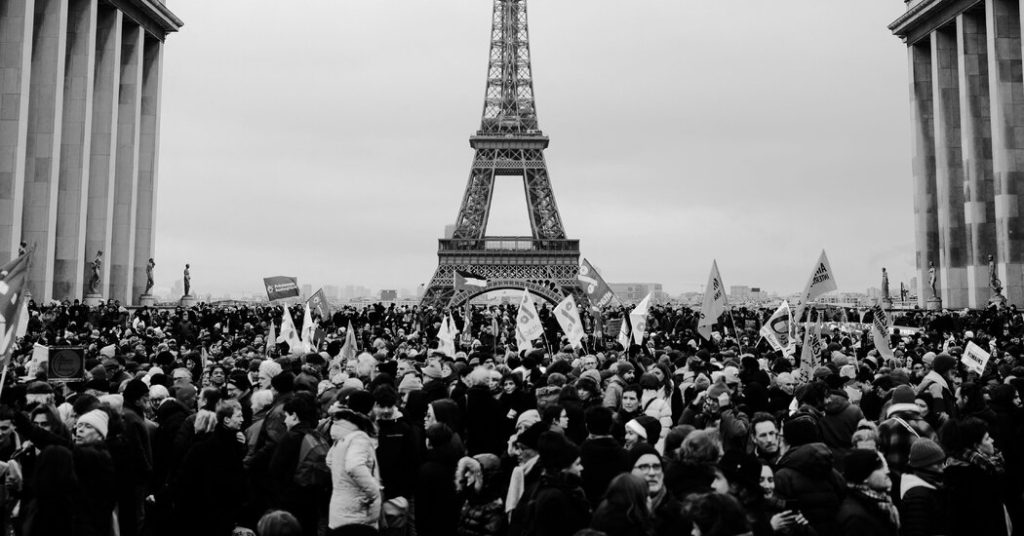Navigating France’s Turbulent Waters: François Bayrou’s Challenge
François Bayrou, France’s fourth prime minister within a year, stepped into office amid a tempest of challenges. His inauguration in December highlighted a nation grappling with a debt crisis, political turmoil, and deepening societal fractures. Bayrou’s ability to maintain a cohesive government is a testament to his navigational skills, yet the path ahead remains fraught. The recent parliamentary backing of his budget, despite a subsequent no-confidence vote, underscores both his resilience and the precarious political landscape. As France faces a deficit exceeding 6% of GDP, Bayrou’s success in holding the government together offers a glimmer of hope, though the broader issues persist.
Societal Malaise: A Nation in Decline
France is enveloped in a pervasive sense of malaise, with 87% of citizens believing the country is in decline. This sentiment is often articulated through the prism of cultural and civilizational threats, exacerbated by unrest in overseas territories. Conservative media outlets, echoing the style of Fox News, amplify fears surrounding insecurity, immigration, and Islam, fueling a fervent defense of French identity. Even centrist leaders like Bayrou evoke a sense of "submersion," reflecting widespread anxieties. Economic strains, from energy inflation to industrial decline, further exacerbate these feelings, eroding public confidence in the state’s ability to navigate these challenges.
The Erosion of France’s Social Model
At the heart of France’s turmoil is the decline of its postwar social model, which once epitomized a balance of state-led investment, welfare, and labor rights. This model, now in retreat, has led to diminished public services and infrastructure underinvestment, fostering disillusionment. Surveys reveal waning trust in public institutions, with greater faith placed in smaller enterprises and security forces. Decades of privatization and cost-cutting measures,Implemented by both left and right, have hollowed out the social infrastructure, leaving citizens feeling abandoned. The political blame game, which often scapegoats vulnerable populations, further entrenches this decay.
The Rise of the Far-Right: Marine Le Pen’s National Rally
Amid this dysfunction, Marine Le Pen’s National Rally gains momentum, capitalizing on widespread discontent. Contrary to stereotypes, the party’s appeal extends beyond working-class Protestants, reaching into the middle class and younger voters disillusioned with the system. Le Pen’s rhetoric, centered on meritocracy and individual endeavor, resonates with those alienated by stagnating wages and prolonged working lives. While opposing austerity, the party’s stance on welfare remains ambiguous, reflecting a broader shift toward self-reliance. This stance underscores a populace increasingly wary of the state’s role, seeking solutions in individual autonomy.
France’s Current Conundrum: Is Disaster Looming?
Despite anxieties, France’s economic outlook isn’t as dire as Greece’s. Its productivity surpasses Italy’s, and social mobility, though weak, shows signs of improvement. However, the cultural and political landscape is deeply troubled. The far-right’s ascendancy, with Le Pen polling at 35% for the 2027 election, signals a significant shift in the political tectonic. While legal challenges may impede her candidacy, the themes she embodies—security, identity, and sovereignty—continue to resonate, indicating a potential realignment of French politics.
The Road Ahead: Challenges and Considerations
As France navigates these turbulent times, the decline of the postwar social compact and rise of privatization sentiments pose significant challenges. While trade unions and social movements defend welfare and labor rights, the left’s ability to rally a broader consensus remains in doubt. Macron’s presidency, marked by shrinking support and failed policies, highlights the fragility of centrist strategies. With political fragmentation and potential snap elections looming, France stands at a crossroads. The ideas of the far-right, though their patriarch Jean-Marie Le Pen has passed, continue to influence the political discourse. The coming years will determine if France can reaffirm its commitment to a cohesive society or succumb to the forces of division and decline.












